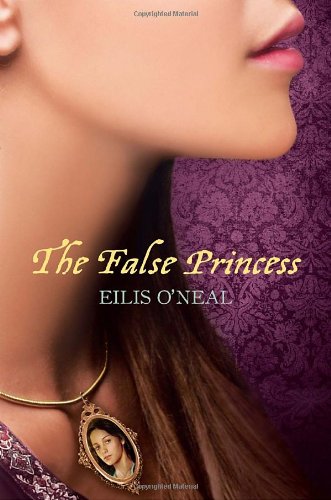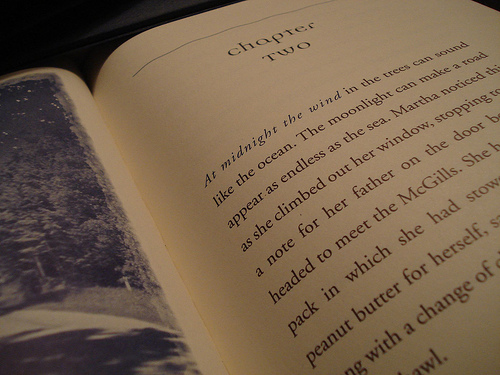Two popular fairy tales are seamlessly blended into one charming and magical story in The Princess Curse.
Thirteen year- old Reveka is new to the kingdom of Sylvania where she is apprenticed to the local herbalist while her father works at the palace. Shortly after her arrival Reveka learns about the Prince's daughters, who are under a mysterious curse that leaves their feet bloody and blistered each morning. No one know what goes on each night behind the locked doors to princess's rooms and anyone who attempts to find out ends up in a deep sleep from which they never wake up, except for those who disappear completely. Many princes have arrived in Sylvanie in the hope of breaking the curse and marrying a princess, but they are never heard from again, leading to political tension and distrust between the kingdoms.
When Reveka learns about the generous reward being offered to whoever can break the spell, she becomes determined to be the one to accomplish this challenge. With the money from the reward Reveka can gain some independence and build an herbary of her very own. Though when Reveka discovers that her friend's mother is one of the sleepers, and that she will die if not awakened soon, her struggle to find the cure takes on a new urgency. Reveka will do whatever it takes to save the lives of the innocent bystanders caught up in the spell, even if it means sacrificing herself to the frightening creature behind it all.
If you haven't already guessed it, The Princess Curse is a retelling of The Twelve Dancing Princesses, with a young girl as the protagonist. For the most part, the story stays true to the original fairy-tale, until Reveka solves the mystery, at which point some elements of Beauty and the Beast creep in. The combination works well together though due to Revek's young age there is only a hint of romance and the promise that it will develop more fully once Reveka is a bit older.
I'm not usually tempted into reading Middle Grade books but I just couldn't resist trying this one out when I saw it at the library, and I'm glad that I did. Even though it was a bit younger in tone than what I usually read I didn't have any trouble getting caught up in the story and I fully enjoyed spending time with its smart and feisty heroine.
Once I finished The Princess Curse I rushed online to see if the sequel was available yet but unfortunately it seems that it's not even a work in progress. This was very disappointing as The Princess Curse begs for a sequel and I'm really looking forward to meeting an older Reveka, and for that promised romance...
But Ms. Haskell does have another book scheduled to be released next year which takes place in the same world and which has a very enticing title, Handbook for Dragon Slayers. It sounds like fun, and given how much I enjoyed The Princess Cure, I will undoubtedly be picking it up.
This just really made my day and so I had to share it with you.
From Not Always Right:
Well-To-Do, If A Bit Daffy
Bakery- USA
(A well-dressed woman enters the store and hands me a note.)
Customer: “Could you get this order ready for me, please? I’ll be back in ten minutes.”
(I look at the note, but it’s blank.)
Me: “There is nothing written on this note.”
Customer: “Well, I decided to surprise myself today with my purchases.”
Me: “Okay…that’s new, but I’ll see what I can do!”
(Ten minutes later, she returns.)
Customer: “So, what did I buy today?”
Me: *hands her a bag* “Three pounds of bread crust to feed the ducks in the park. They are free of charge.”
Customer: *surprised* “Oh! I was planning to go to the hairdresser, but this is…DUCKS, YOU SAY? Well, off to the park, then! Goodbye!”
I'm always hesitant about reviewing non-fiction books here because many of you have commented that you don't particularly care for such books. But since I owe Bloomsbury a review of If Walls Could Talk (via NetGalley) I thought I would take this opportunity to share with you some of the other non-fiction books that I recently read and enjoyed. Hopefully, I might even tempt you to give one of them a try.
~~~~~~~~~~~~~~~~~~~~~~~~~~~~~~~~~~~~~~~~~~~~~~~~~~~~~~~~~~~~~~~~~
If Walls Could Talk: An Intimate History of the Home by Lucy Worsley
One of my favorite authors, Bill Bryson, had recently published a book in which he takes readers on a tour of his house, examining the history of each object in it. Since I love Bryson's writing style and enjoy learning interesting facts about random objects, this was a book that I was really looking forward to reading. Unfortunately the book wasn't quite what I had expected and after a couple of chapters I set it down permanently. Shortly afterwards I came across If Walls Could Talk, which sounded a lot like what I had been hoping Bryson's book, At Home, would be like, so I decided to give it a try. This time the book didn't get put down for several days, at which point everyone around me was sick of hearing about the history of beds, how closets came to exist and how Tudor maids removed stains from clothes (with urine!). But if you are the kind of person who enjoys such facts, I'm sure you'll love this book as much as I did.
I was particularly interested in discovering the origins for many of the customs and beliefs that I had heard of but didn't know the source for. For example, while I knew that in Renaissance England it was fashionable to wear white collars and shirt cuffs I didn't know that the purpose of this was to publicize the wearer's cleanliness, at a time when bathing was out of fashion. It was fascinating to discover the way that so many of the customs and behaviors of the past shaped the way that we live today.
I was slightly disappointed that Worsley doesn't go into any depth about her research in writing the book since she mentions that she had actually tried out for herself many of the practices that she discusses here, from sleeping in a rope bed to washing laundry, Tudor style. I would really have enjoyed reading about these experiences and the conclusions she came to, so I felt a bit let down that they weren't included in the book. Though I hadn't realized at the time that If Walls Could Talk is also a program on BBC, and I expect that Worsley discusses her experiences a bit more on that show, which I definitely intend to track down.
~~~~~~~~~~~~~~~~~~~~~~~~~~~~~~~~~~~~~~~~~~~~~~~~~~~~~~~~~~~~~~~~~
 Undress Me in the Temple of Heaven by Susan Jane Gilman
Undress Me in the Temple of Heaven by Susan Jane Gilman
I had added this book to my To Be Read list a while back because it claimed to be an account of two young women backpacking through China in 1986, shortly after the country became open to tourists. But because of the unfortunate title and the naked woman on the cover, it wasn't until I ran out of all my other reading material that I finally got around to picking it up.
I didn't really know what to expect from this book but my wary suspicions were quickly laid to rest after being introduced to Susie and Claire, Brown University graduates preparing to backpack around the world. I enjoy reading travelogues and had never read one of China before so I looked forward to seeing how this one would proceed.
A few chapters into the book and I knew that this was not simply going to be the recollections of two women exploring a foreign country. Something was clearly going on behind the scenes, possibly something sinister. Strange comments about their traveling companions and Clair's occasional odd behavior gave me the sense that something shocking or frightening was going to be reveled at any moment, and this put me off balance for much of the book. I kept waiting for whatever it was that was going to happen to jump out of the pages at me, which got to be pretty distracting. I guess I'm just not used to dealing with this level of tension in a travel book.
After finishing the book I realized that this story really wasn't about a trip through China but rather a coming-of-age story about two young women struggling to adjust to a setting and culture far different from anything they had ever experienced, and not always with success.
While this was not at all what I had expected, in so many different ways, and it's probably not a book I would choose to take with me if I ever visit China, it was still a compelling story that packs an emotional punch.
~~~~~~~~~~~~~~~~~~~~~~~~~~~~~~~~~~~~~~~~~~~~~~~~~~~~~~~~~~~~~~~~~
The Winter of Our Disconnect by Susan Maushart
I really wish that I hadn't waited so long before telling you about this book because my memory of it has grown fuzzy over time. But I remember that I enjoyed it enough to want to tell you about it, and so I will try to do my best to relay to you what I can remember.
When Susan Maushart got fed up with having her kids constantly plugged into the Internet she announced a six-month ban on all electronic devices with a screen, in the house. From iPods to laptops, everything must go. And to make the situation even more challenging, for the first two weeks there would be no electricity in the house at all.
Needless to say, Maushart's three teenagers were less-than enthusiastic with this idea. But when they are promised some of the profit from the sales of the book that this information would go towards, two of the kids became willing participants. The third went to live with her father for a while.
I was fascinated by Maushart's account of her family's two weeks without electricity and the six months that followed without the use of electric gadgets. While at first her kids grumbled constantly eventually they began to find new activities to spend their time on to replace those hours that were previously spent on the Internet and playing computer games. They started reading books and playing games. Maushart's son picked up his neglected instrument (I can't remember which one) and began playing regularly. One of my favorite anecdotes in the book recounts how Maushart's arrived home one evening to find her son playing the piano surrounded by his friends, who were singing along.
Throughout the book Maushart shares interesting tidbits about how the Internet has effected the way that people relate and communicate with each other these days. One example I recall her making is that people are now far less-punctual because they can always call, when running late, to inform the person waiting that they will be late.
The issues that Maushart discusses here aren't ones that touch me personally (we don't even have a TV and the time my kids spend on the computer is strictly monitored) but I was still interested in reading about her experiences and the research that she shares.



















